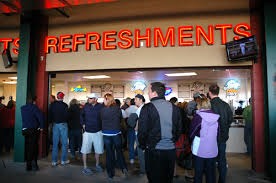WHEN CERTAIN CITY PEOPLE
DISSED SMALL TOWN JUSTICE
The following is a true story:
It happened sixty-nine years ago, the summer of 1946, in the small New Jersey town of Freehold, my hometown. Now Freehold was no ordinary small town. As a matter-of-fact it happened to be a very special small town. (See: The Rug Mill) For one thing, it was and is the county seat of historic Monmouth County. Back then; the county courthouse was on Main Street. How many towns of 7,000 people could boast of having a courthouse and a horseracing track? Not many, I can assure you. And—this was not just any ordinary horseracing track. It was a racetrack for trotters and pacers, together with pari-mutuel betting. It was at the Freehold Raceway that my story begins.

Besides the county courthouse there was a separate courtroom on the second floor of the firehouse. It is there that part of my story took place with Judge Holmes presiding and most of the Freehold police force attending as supportive, unofficial observers. Now, I am getting ahead of my story.
It was the beginning of July 1946. My two younger brothers had left for sleep-away camp and my parents were off on vacation. Having just graduated from Freehold High School, I decided to stay at home and get a job before leaving for my freshman year of college. The job I got was behind a refreshment stand, under the grandstand stand, at the Freehold Raceway.
It was here my drama was to begin, that would drag in the mayors of two towns, the local court system and the Freehold police force. Then there was the recent hiring, by the raceway of a New York City franchise holder for providing refreshments and policing at the Freehold Raceway, displacing off-duty local police.
It was a busy day at the races. I was behind the refreshment stand serving cold drinks, hot dogs and various other food items along with other servers including the boss’s son or son-in-law, acting as a manager. There was not a hint of the local drama that was about to take place. The refreshment stand was busy between races and I was serving customers, taking payments, making change and pocketing tips, all part of the job when it happened.

I had just made a sale, gave change and was putting a tip in my pocket when the manager grabbed my wrist and accused me of stealing. He made me empty my pocket containing change from tips and other change I already had and accused me of being a thief. What ensued is somewhat of a blur. He said you’re fired and I said I quit. This led to the dramatic events that followed:
I went home and called my uncle, Irving Flicker, Mayor of a neighboring town the Jersey Homesteads (Now Roosevelt) and told him of the events that took place at the track. He told me to call Fred Quinn, mayor of Freehold and explain those events to him. I called Fred Quinn and explained everything including that my parents were away on vacation. He told me that he would take care of the situation and for me not to worry. (The wheels of small town justice were turning.)
The mayor called Judge Holmes (a descendant of Oliver Wendell Homes) and explained the situation. Just as a sidebar, Judge Homes’ son was a friend of mine. In the meantime I heard nothing more until that evening when my home phone rang. It was a local lawyer, Bernard Weiser, who informed me that he represented the franchise manager who had accused me of stealing and that the manager (I don’t recall his name) was in jail.
It seems that Judge Holmes issued a summons for the manager to appear before him on a charge of assault and the manager chose not to honor the summons. This resulted in the manager being arrested and placed in jail. Bernard Weiser was hired (I assume) because all the other lawyers in town were friends of our family and probably chose not to represent the manager once they knew the situation.
Back to Bernard Weiser. He asked me to withdraw my complaint against his client so that he could be released from jail. I refused, resulting in his over-night stay behind bars. I then called Sam Sagotsky (not certain of the spelling), my father’s local lawyer and explained all. Sam told me to wait while he checked everything out and then got back to me. I was to appear in court the next day. He would be there.
The next day, Judge Holmes’ courtroom above the firehouse was filled with spectators, many of them, smiling, uniformed policeman. And there was Bernard Weiser with his unhappy client, just released from his overnight stay in jail.
To make this long story short, it was decided to postpone the case until my parents returned from vacation. That’s small town justice. Upon their return and my father’s meeting with the court, I agreed to withdraw my charge in exchange for an apology (which I received).
So ended an upbeat case for small town justice.
Bob Flicker